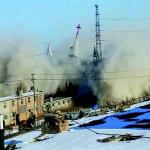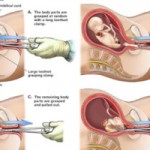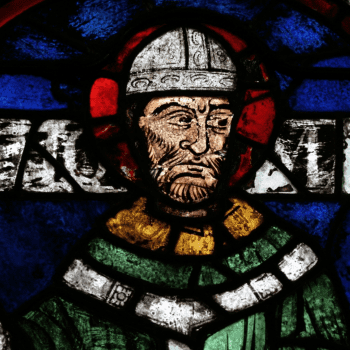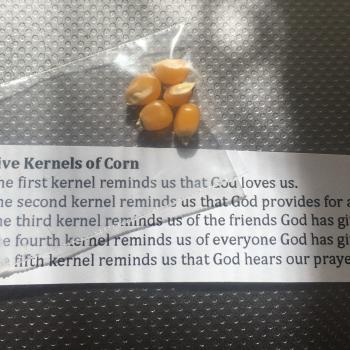In 2014, a pastor in Thousand Oaks, California, was asked to run for the California Assembly. Four year laster he was sworn in as the city’s mayor.
Pastor Rob McCoy had been preaching at Calvary Chapel for more than 13 years when he was first approached to run for political office. His initial response, was “not doing that,” but after weeks of prayer announced he would run. He had 650 volunteers who backed him, campaigning for 11 straight months. Despite their best efforts, Pastor McCoy lost the race by 4,000 votes out of the 130,000 votes cast.
It should be noted that this man does far more than preach on Sundays. He leads community efforts after regional and national tragedies, leads groups and speaks all over the world. He’s also a husband, father and grandfather. Running for office, and keeping the commitment to represent his constituency would result in scaling back on other commitments– or not being able to sleep.
The next year, Pastor McCoy was asked again to run for office, this time for Thousand Oaks City Council. His response again was, “no thanks, I’m spent.” But his supporters wouldn’t back down because they truly believed in his capabilities to lead. They then took upon themselves much of the heavy lifting for this campaign.
One of these supporters, a retired police officer, knocked on 10,000 doors. Another, a businessman, called 12,000 people. Another, a new U.S. citizen from England organized 150 community outreach coffee events in homes of residents, most of whom had never been to McCoy’s or any other church.
But after meeting the pastor, and after much hard work, McCoy won the election by 52 votes.
Pastor McCoy quipped, “Do you know what they call someone who wins by 52 votes. The winner.”
In 2018, Pastor McCoy, who is still preaching and leading at Calvary Chapel, ran for the position of mayor of Thousand Oaks, and won.
He was sworn in on December 11, 2018.
David Lane, founding director of the American Renewal Project, and a member of Calvary Chapel, argues that “many serving in pastorates possess similar skills as elected officials, such as ‘social astuteness, interpersonal influence, and networking ability’.” He adds that pastoral skills also include the ability to be exceptionally perceptive, to recognize truth and reality and observe human nature.
Many pastors have run for office at the state and federal level. Below are a few pastors who became representatives in U.S. Congress or governors of their states.
Pastors and congressmen include:
- James Lankford, a youth pastor and evangelism specialist with the Baptist General Convention of Oklahoma and Falls Creek Baptist Conference Center, is the current U.S. Senator from Oklahoma. Prior to being elected to the Senate in 2016, he was a member of the House from 2011 to 2015.
- Tim Walberg is a Republican U.S. congressman from Michigan. He was the pastor of the non-denominational Union Gospel Church in Tipton, Michigan, until he became a state representative in Michigan’s House, serving from 1983 to 1998. In 2006, he was elected to the U.S. House, and has been reelected in every election since.
- Emanuel Cleaver, is a U.S. congressman from Missouri who has first elected in 2004 and has served ever since. He is also ordained by the United Methodist Church.
- Ron Lewis, a Baptist pastor, served Kentucky as a Republican congressman from 1994 to 2009.
- William H. Gray succeeded his father as the senior minister at Bright Hope Baptist Church in Philadelphia in 1972. As a Democrat, he was elected to the U.S. House in 1978 and served until 1991.
- William H. Hudnut III was a Presbyterian minister and the 45th mayor of Indianapolis from 1976 to 1992. A Republican, he was the city’s longest-serving mayor. Hudnut previously represented the Indianapolis area as a U.S. congressman from 1973 to 1975.
- Walter E. Fauntroy was the former pastor of the New Bethel Baptist Church in Washington, D.C., and a civil rights activist. He was a delegate to the U.S. House and a candidate for the 1972 and 1976 Democratic presidential nominations.
- John Danforth, an ordained Episcopalian priest, began his political career in 1968 as the Attorney General of Missouri. He then served three terms in the U.S. Senate. In 2004, he served briefly as U.S. Ambassador to the United Nations.
- Adam Clayton Powell Jr. was a thirteen term congressman from Harlem, New York (1945-1971) who was also a pastor at Harlem’s Abyssinian Baptist Church from 1937-1972.
- John Bull, a clergyman and physician, was a U.S. congressman from Missouri in 1833 and 1834.
Pastors and governors include:
- Ernie Fletcher, a Baptist lay minister and a family practice physician, was also a three-term congressman and Kentucky’s 60th governor. In 1998, he was elected to serve three consecutive terms in the U.S. House. He was Kentucky’s governor from 2003-2007. Fletcher was also only the second physician to be elected governor of Kentucky.
- Mike Huckabee, a Baptist minister, was Arkansas’ 44th governor from 1996 to 2007. He was also a Republican presidential candidate in the 2008 and 2016 primaries. As an author and political commentator, he remains one of the most prolific and public figures in America.
- Ted Strickland, who was briefly a United Methodist pastor, was Ohio’s 68th governor from 2007-2011. He previously served Ohio in the U.S. House as a Democrat from 1993 to 1995, and again from 1997 to 2007.
- Robert L. Williams was a Methodist clergyman, attorney, judge, and the third governor of Oklahoma. He helped draft Oklahoma state constitution (Oklahoma became a state on November 16, 1907). Williams served as Oklahoma’s first Supreme Court chief justice and also as a federal district and circuit judge.
- James Garrard was a farmer and Baptist minister who served as Kentucky’s second governor from 1796 to 1804.
John Witherspoon was the only active clergyman to sign the Declaration of Independence.
On May 17, 1776, the same day the Continental Congress declared a National Day of Fasting, Humiliation and Prayer, Reverend John Witherspoon delivered a sermon at Princeton University entitled “The Dominion of Providence over the Passions of Men.” In it, he said,
“While we give praise to God, the Supreme Disposer of all events, for His interposition on our behalf, let us guard against the dangerous error of trusting in, or boasting of, an arm of flesh.
“If your cause is just, if your principles are pure, and if your conduct is prudent, you need not fear the multitude of opposing hosts. What follows from this? That he is the best friend to American liberty, who is most sincere and active in promoting true and undefiled religion, and who sets himself with the greatest firmness to bear down profanity and immorality of every kind. Whoever is an avowed enemy of God, I scruple not to call him an enemy of his country. It is in the man of piety and inward principle, that we may expect to find the uncorrupted patriot, the useful citizen, and the invincible soldier.
“God grant that in America true religion and civil liberty may be inseparable and that the unjust attempts to destroy the one, may in the issue tend to the support and establishment of both.”












